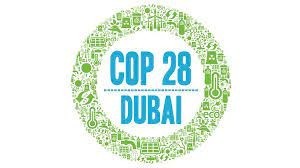Bulgaria will participate for the first time with its own stand at the upcoming UN Climate Change Conference - COP 28, which will be held from 30 November to 12 December in Dubai. Bulgarian companies from various sectors, funding institutions, local authorities, and scientists are expected to be represented at the stand.
This puts Bulgaria on the map of climate diplomacy and provides it with an opportunity to be recognized for its achievements, Environment and Water Minister Julian Popov told the media.
Conferences of the Parties to the UN Framework Convention on Climate Change are growing in importance at the global level. They are the culmination of a tough, year-long negotiating cycle, whereby teams have been negotiating extremely intensively. The way Bulgaria presents itself is particularly important, said Minister Popov. According to him, the Bulgarian business will have the opportunity to showcase its activities and achievements in Dubai.
The European Union is a leader in climate change policy and in preventing the negative impacts caused by greenhouse gases. The aim of the EU, and Bulgaria as a its member, is to involve all other countries in this policy, said Silvia Rangelova, Director of the Directorate for EU and International Cooperation Coordination at the Ministry of Environment and Water.
In the world of climate policy, there is a fierce competition, in which China is currently winning, followed by the US, and only then Europe. Climate policy also has a major impact on the activities of companies and the functioning of cities, said Minister Popov, mentioning the example of Sofia and Gabrovo, which are the only two Bulgarian cities to have joined the European Commission's initiative to become climate neutral by 2030.
Bulgaria is looking for recognition, recognition of real achievements, which are largely within the business. An example of this is the so-called Varna Cluster, formed by Solvay Sodi, Agropolichim, and Devnya Cement - large enterprises that strive for carbon neutrality and work jointly. Another example is the Thrace Economic Zone, which has been working on this concept for five years and has defined itself as carbon neutral - the only economic zone of this type in the EU. Another example is the Bulgarian solar industry, which is, perhaps, number one in the EU in building industrial solar installations outside the country's borders, explained Minister Popov.
Bulgaria's bid to host the next COP 29 conference is unlikely to succeed given Russia's opposition, but our country has proposed the idea of a so-called Distributed COP.
